- Inveta Products LLC
- Automotive Supplier
- Tier 1
- side door latches
- liftgate latches
- window regulators
- window regulator motors
- OEMs
- Indian automakers
Inveta Products LLC Expands Its Manufacturing Facility In India
- By MT Bureau
- November 14, 2024
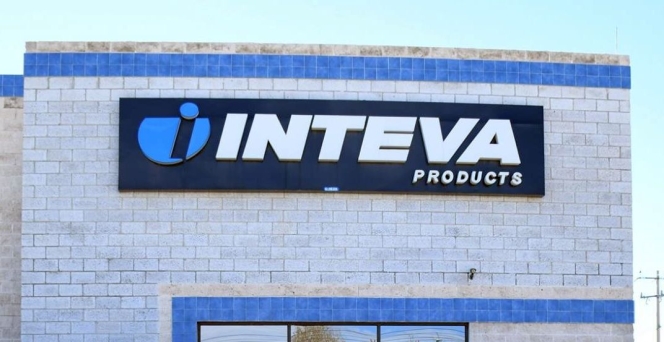
Inventing the first-ever window regulator that would allowing drivers to raise or lower windows while driving in 1917, Inteva Products LLC – formerly Delphi Interiors and Closures – has announced that it has earmarked US $ 3.3 million to expand its manufacturing facility in India at Pune.
Employing the use of rubber and plastic materials in place of wood in interiors as safer alternatives in 1924, the US-based Tier 1 automotive supplier will significantly increase its production capacity and operational efficiency in line with the company’s commitment to meet the rising demand from India’s expanding automotive sector.
Developing the world’s first sealed door module and producing the first steel door module in the period between 1968 and 1982, Inveta Products – specialising in the manufacture of in automotive systems and components – has highlighted a 70 percent increase in the plant’s production space as part of the expansion initiative.
Witnessing a growth in space to 85,000 sq. ft, the company – using polystyrene-based materials to improve the crash worthiness of instrument panels starting with the Chevrolet Corvette – will also invest in 26,000 sq ft of office space.
To install new production lines for window regulators, latches, and window regulator motor assemblies, the company that developed the world’s first sealed door module in the 1980s, is positioning itself to better serve its customers in the country.
Claiming to be the first automotive supplier to develop seat motors and power trunk latches in 1984, Inveta Products LLC has announced that the expansion activity it has undertaken will create up to 100 new jobs, benefitting the local workforce and contributing to Maharashtra’s economic growth.
The first automotive supplier to introduce thermoplastic polyolefin (TPO) in extruded-sheet form for use in thermoforming of instrument panel skins in the 1990s, the automotive supplier is also aligning with India’s push for self-reliance in the automotive sector.
Exhibiting a long-term commitment through the expansion initiative, Inveta Products LLC has embarked on the expansion spree as part of its strategy to support the country’s role as a global hub for automotive manufacturing.
“This expansion reflects Inteva’s ongoing commitment to the Indian market, which is critical to our global growth strategy,” said Gerard Roose, President and CEO of Inteva Products. “As demand for high-quality automotive components continues to rise, we are proud to increase our capacity to better serve our customers while creating valuable local employment opportunities,” he added.
The existing facility of Inveta Products LLC in Pune – Inveta’s Indian journey began in 2008 and was followed by the commissioning of a greenfield plant in Chakan in 2012 – is manufacturing side door latches, liftgate latches, window regulators and motors for window regulators for leading Indian automakers like Mahindra & Mahindra, Tata Motors, Stellantis, Volkswagen, Hyundai, MG Motors and Force Motors.
The plant is also a critical supplier to the global automotive supply chain, exporting window regulator motors to markets in South Africa and North America.
Commenting on the expansion exercise, Sanjay Kataria, Vice President and Managing Director, Inteva India, averred, “With this expansion, we’re able to offer our customers even more localized, high-quality automotive components that meet their evolving needs. Our investment in advanced manufacturing capabilities here in Pune underscores our commitment to excellence and innovation.”
Building a track record for delivering high-tech automotive solutions with an emphasis on quality, efficiency and sustainability, the automotive Tier 1 supplier has a technical centre in Bengaluru. The centre has approximately 320 people of which 181 are engineers that support both global and Indian operations with advanced product development and engineering expertise.
Bharat Forge Subsidiary JS Auto Cast Secures INR 3 Billion From Premji Invest
- By MT Bureau
- February 02, 2026
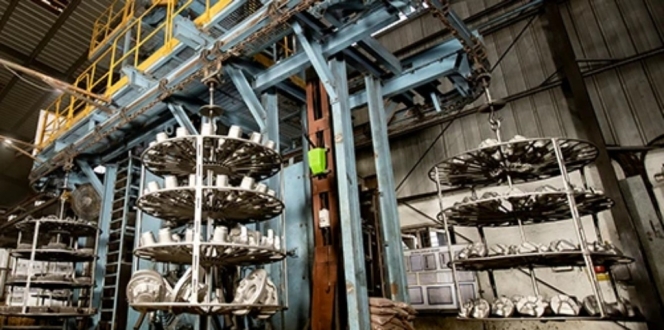
JS Auto Cast Foundry India (JSA), a subsidiary of Bharat Forge, has raised INR 3 billion crore in equity from Premji Invest (PI). Following the primary infusion of capital, Premji Invest will hold a 23 percent stake in the company on a fully diluted basis.
JSA is a supplier of ferrous castings for the industrial and automotive sectors. The company intends to use the capital to expand casting capacity, invest in medium casting capabilities, and pursue industry consolidation through acquisitions.
Since its acquisition by Bharat Forge in 2022, JSA has reported growth in revenue, exports, and profitability with a Compound Annual Growth Rate (CAGR) of 17 percent, 24 percent and 25 percent respectively.
Amit Kalyani, Vice Chairman & Joint Managing Director, Bharat Forge, said, “Since 2022 when we acquired JSA, the company has delivered excellent financial performance with topline, exports and profitability growing at a CAGR of 17 percent, 24 percent and 25 percent respectively, while enhancing its product mix and customer base. We are delighted to partner with Premji Invest (PI), a renowned and highly respected investor, in the next phase of JSA’s growth journey.”
The investment aligns with Premji Invest’s strategy of collaborating with engineering and manufacturing conglomerates on growth and consolidation initiatives.
Manoj Jaiswal, Partner, Premji Invest, said, “We are excited to partner with Bharat Forge, a premier engineering and manufacturing conglomerate in the country. Collaborating with leading conglomerates on their growth and consolidation journey is one of our strategic pillars. Through our investment in JSA, we look forward to jointly building a leading ferrous casting platform in the country.”
- Schaeffler India
- Symposium on International Automotive Technology
- SIAT 2026
- Deepak Kasturi
- Madhurisha VIppatoori
- Harsha Kadam
- Viswanathan Sambasivam
- Omkar Kulkarni
Schaeffler India Showcases Next-Gen Product Portfolio At SIAT 2026
- By MT Bureau
- January 28, 2026
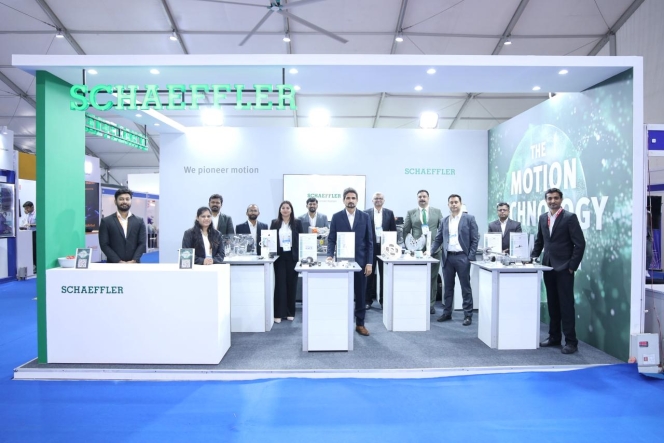
Tier 1 supplier Schaeffler India is showcasing a range of motion technologies at the Symposium on International Automotive Technology (SIAT) 2026. The company's exhibit at Hall Zone D includes electrification solutions such as drives, motors and modules, alongside powertrain systems for internal combustion engines and hybrid vehicles.
The portfolio on display features chassis components, sensors, fuel delivery modules, and bearings designed to reduce friction in vehicles. The company is highlighting its local engineering capabilities and its work with manufacturers to develop mobility solutions within India.
Company executives are participating in the symposium's technical programme. Madhurisha Vippatoori, Chief Technical Officer, is chairing the Testing and Evaluation track. Deepak Kasturi, Head of Innovation India, is delivering a keynote address regarding Euro 7 standards and real-time emissions monitoring.
The company stated that its presence at the event reflects its focus on engineering innovation, energy efficiency and collaborative development with automotive customers and academia.
Harsha Kadam, CEO & MD, Schaeffler India, said, “As a leading mobility solutions provider in India, we at Schaeffler are proud to be associated with all the leading automotive customers in shaping the future of mobility. We are equally committed to supporting our customers across various types of powertrains that will support cleaner, electrified, and intelligent mobility. Together, we are shaping a more secure, sustainable, and future-ready India.”
Viswanathan Sambasivam, Division Head - Powertrain & Chassis India, said, “SIAT provides an ideal platform to demonstrate how we are shaping mobility for India. Our focus is on co-engineering with OEMs, accelerating technology transfer, and strengthening local value creation. The solutions we are bringing this year represent the next step in advancing clean, safe, and smarter mobility.”
Omkar Kulkarni, Division Head - E-Mobility India, said, “India is one of our most important engineering hubs. Our teams here are working closely with customers to design for India, build in India, and innovate for India. The technologies displayed at SIAT underline our ability to combine global expertise with local development capabilities.”
Indian Auto Component Industry Set To Showcase Its Prowess At ACMA Automechanika New Delhi 2026
- By MT Bureau
- January 28, 2026
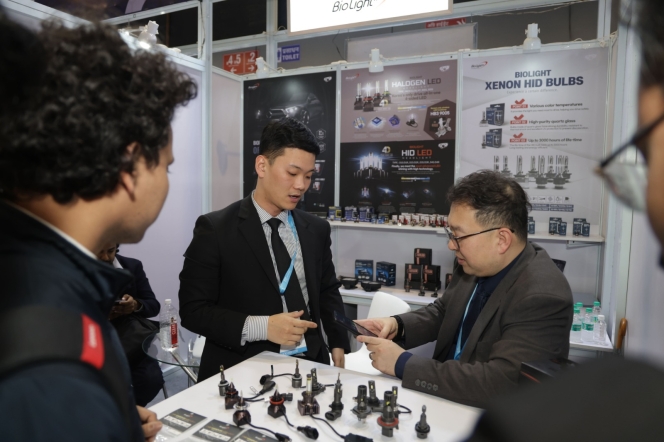
The Indian automotive component industry was valued at USD 80.2 billion in FY2025, with the aftermarket segment contributing USD 11.8 billion. Data from the Automotive Component Manufacturers Association of India (ACMA) indicates the sector grew by 6.8 percent to reach USD 41.2 billion in the first half of FY2026. Industry projections suggest the component market will reach between USD 111 billion and USD 200 billion by 2030.
Against this growth, the ACMA Automechanika New Delhi 2026 trade fair will take place from 5 to 7 February 2026 at Yashobhoomi, New Delhi. Organised by Messe Frankfurt Trade Fairs India and ACMA, the event will host more than 870 exhibitors. The fair serves as a platform for manufacturers, distributors and service providers to showcase innovations in spare parts, electronics, diagnostics and workshop equipment.
The exhibition will feature participation from 20 countries, including Germany, Japan, Korea and the USA. Dedicated pavilions will highlight technologies from nations such as China, Italy and Taiwan. The event focuses on electrification, alternative fuels and digital authentication. Exhibitors will display ethanol-ready components, hydrogen systems and electric vehicle charging solutions.
Raj Manek, Executive Director and Board Member of Messe Frankfurt Asia Holdings, said, “As India prioritises quality-led development across sectors, ACMA Automechanika New Delhi 2026 will showcase how the auto components and aftermarket industry is advancing in sync with global trends. The show will unite visitors and exhibitors in a massive international gathering, converging cutting-edge innovations, sustainable component solutions and clean-fuel ecosystems. Global participants are increasingly drawn to India's pivotal role in this transition, with organisations showing strong enthusiasm for tech-driven solutions to combat climate change and build a thriving and a cleaner future”.
Vinnie Mehta, Director General of ACMA, added, "India’s automotive aftermarket is moving towards a more structured, quality-driven and globally aligned future. The auto component industry grew by 6.8 percent to USD 41.2 billion in the first half of FY26, supported by stable domestic demand, a resilient aftermarket and sustained investments in capacity expansion, localisation and technology upgradation. ACMA Automechanika New Delhi provides an important platform for industry stakeholders to engage with emerging technologies, regulatory developments and global market opportunities”.
Sona Comstar Reports 39% Revenue Growth In Q3 FY2026
- By MT Bureau
- January 23, 2026
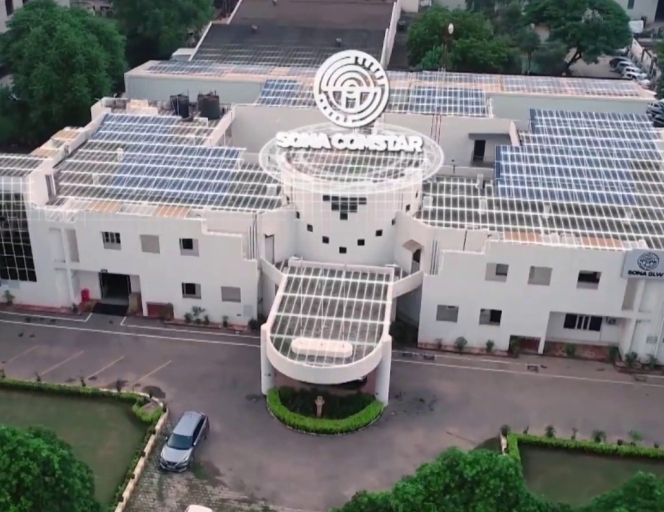
Sona BLW Precision Forgings (Sona Comstar) has announced its financial results for Q3 FY2026, reported revenue of INR 12.09 billion, a 39 percent increase YoY.
The company’s EBITDA grew by 25 percent to INR 3.2 billion with a margin of 25.2 percent, while net profit rose by 20 percent to INR 1.8 billion. Revenue from Battery Electric Vehicles (BEV) represented 38 percent of total turnover.
In the first 9-months of FY2026, the company secured six new programmes, bringing the total to 65 across 33 different customers. Additionally, Sona Comstar was awarded a programme from a new customer to supply hydraulic motor controller.
Vivek Vikram Singh, MD & Group CEO, Sona Comstar, said, “We achieved our highest-ever quarterly revenue, EBITDA, and adjusted net profit in Q3 FY2026. Our revenue grew strongly by 39 percent YoY, primarily driven by the expansion of our electric vehicle traction motor and railway business in India. BEV revenue share improved meaningfully to 38 percent in Q3 from 32 percent in Q2FY2026 and represents our second-best quarter till date in terms of absolute BEV revenue and share. We have commercialised a new product in this quarter, the hydraulic motor controller, leveraging our strengths in motors and controllers to develop the solution for a new application outside the current product portfolio. We continue to add new EV customers and win new EV programs from our existing EV customers. Moreover, we commenced sample production of in-cabin radar sensors in our new SMT line at Chennai facility in this quarter, making us one of the few automotive radar manufacturers in India with local SMT manufacturing capability.”







Comments (0)
ADD COMMENT